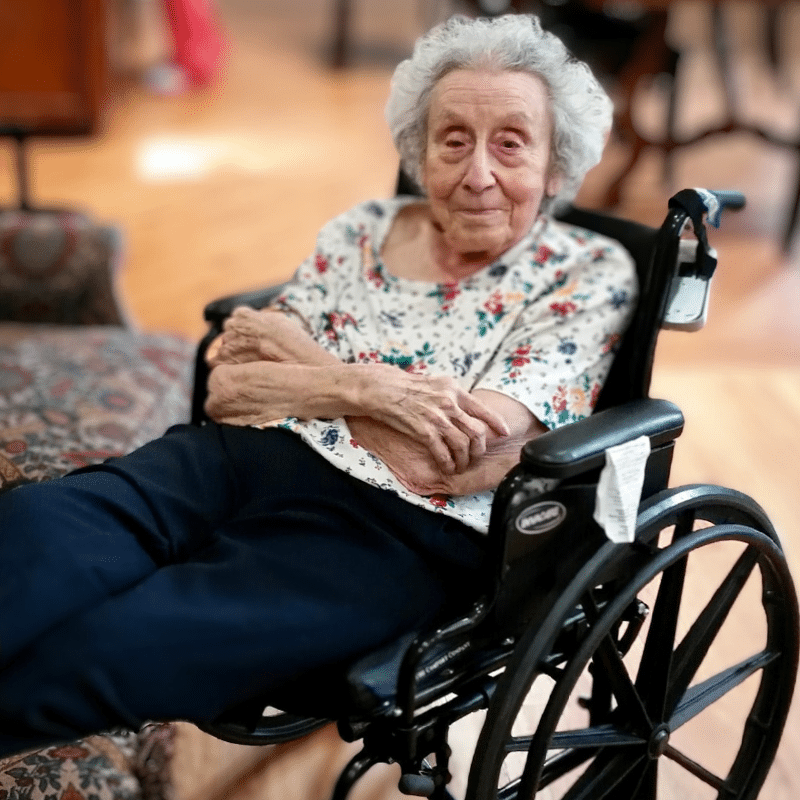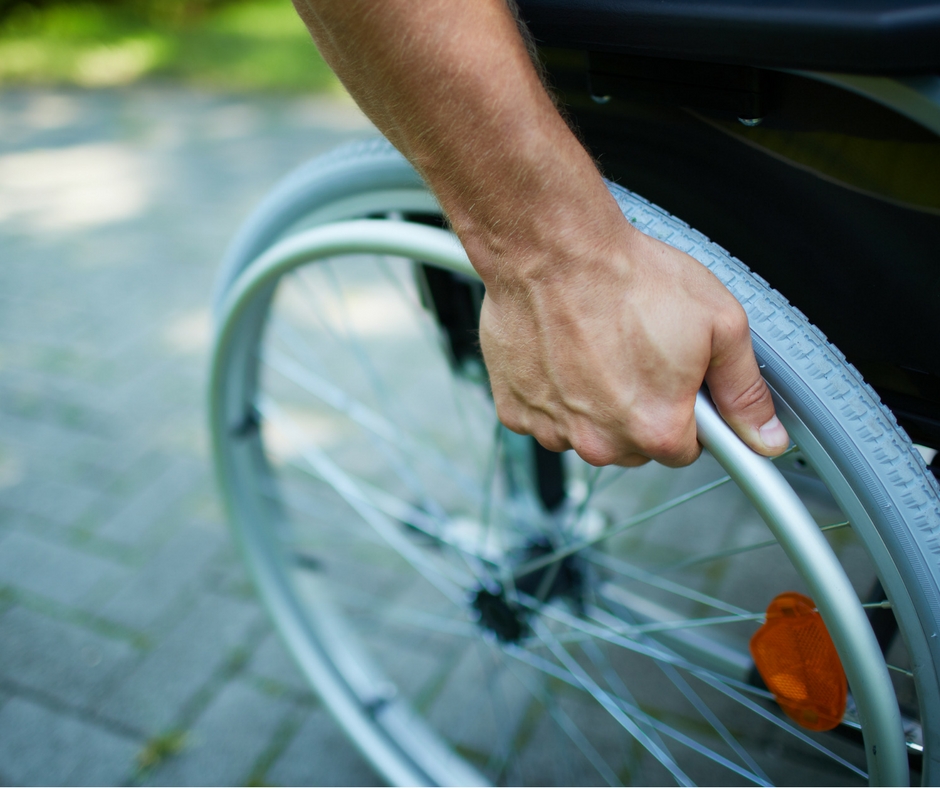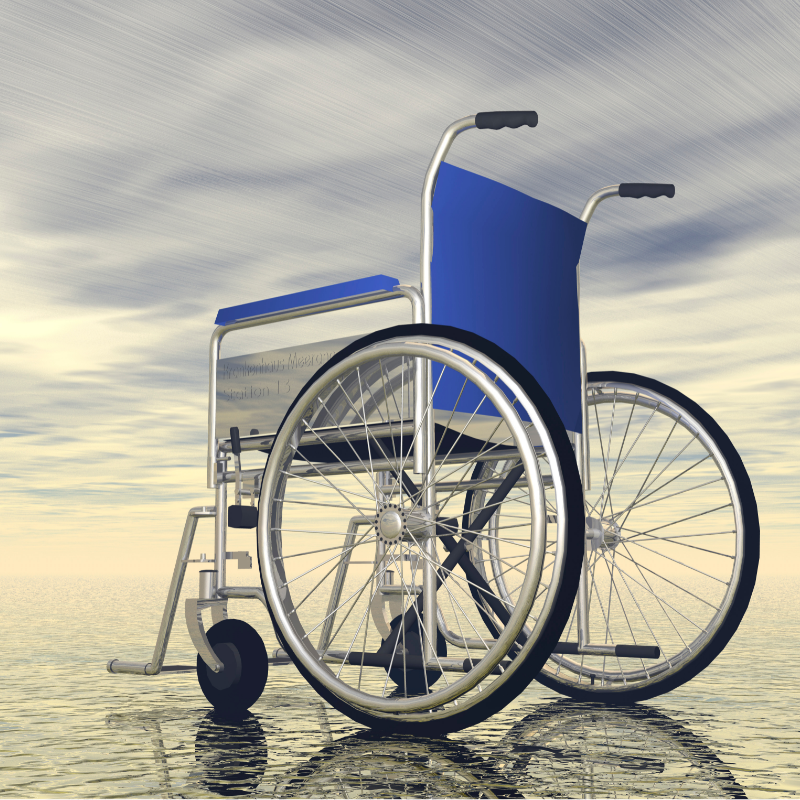Mom tires easily. Her feet are sore, and she struggles to stand — then wobbles as she walks. Because her reflexes are slow, she can’t catch herself when she trips. Finally, her doctor hands you a medical order saying “durable medical equipment” is “medically necessary” to keep her safe.
In other words, Mom needs a walker or wheelchair. She’s at risk for a fall.
How Serious is a Fall?
According to the National Institutes of Health (NIH) National Institute on Aging, “more than one in four people age 65 years or older falls each year. The risk of falling — and fall-related problems — rises with age.”

Mom tires easily. Her feet are sore, and she struggles to stand — then wobbles as she walks. Because her reflexes are slow, she can’t catch herself when she trips. Finally, her doctor hands you a medical order saying “durable medical equipment” is “medically necessary” to keep her safe.
In other words, Mom needs a walker or wheelchair. She’s at risk for a fall.
How Serious is a Fall?
According to the National Institutes of Health (NIH) National Institute on Aging, “more than one in four people age 65 years or older falls each year. The risk of falling — and fall-related problems — rises with age.”

Seniors don’t fall just because they’re older. Chronic medical conditions or medication side effects also may leave them unsteady. The need to rush to the bathroom increases the chance of a fall, as do foot problems, poor eyesight, slow reflexes, muscle weakness and problems with balance or gait. Older adults with mild cognitive impairment or dementia may be at a higher risk of falling.
Any fall can be life-changing for seniors, especially if they break a bone. For many, a fracture is the start of serious health problems and even long-term disability.
Thus, removing trip hazards from Mom’s home is critical. So is understanding the related risks posed by her medical conditions and medications. You also may wish to consult the doctor about exercises for strengthening her core and improving her balance.
What if even these measures can’t keep Mom safe? Then it’s time to ask about durable medical equipment.
What is Durable Medical Equipment?
Let’s break it down using terms defined by Medicare.
- “Durable” equipment is intended for repeated use, with an expected life of at least three years.
- “Medical equipment” must have a medical use for someone sick or injured.
- To be eligible for Medicare reimbursement, durable medical equipment must be
- Intended for use at home,
- Prescribed by a doctor after a recent face-to-face exam and
- Specified as “medically necessary”: needed for particular medical reasons, following accepted standards of medical practice.
(Other insurers may use different criteria.)
Durable medical equipment includes walkers, crutches, power mobility devices and lifts. For this post, we’re focusing on manual wheelchairs.
Who Orders It?
It depends. For instance, if Mom is
- Hospitalized for a broken hip, then the nurse or social worker who plans her discharge also arranges for the equipment and supplies she needs at home.
- Staying in a rehab unit, a physical therapist assesses her equipment needs and arranges for its order.
- In assisted living, there’s no streamlined process to obtain and pay for equipment. Sometimes an observant physician sees a need and writes an order to meet it. More often, a worried nurse, therapist or family member contacts the doctor with safety concerns. The family is left with the task of finding and paying for equipment.
It depends. For instance, if Mom is
- Hospitalized for a broken hip, then the nurse or social worker who plans her discharge also arranges for the equipment and supplies she needs at home.
- Staying in a rehab unit, a physical therapist assesses her equipment needs and arranges for its order.
- In assisted living, there’s no streamlined process to obtain and pay for equipment. Sometimes an observant physician sees a need and writes an order to meet it. More often, a worried nurse, therapist or family member contacts the doctor with safety concerns. The family is left with the task of finding and paying for equipment.
In any case, family caregivers generally act as their loved ones’ fact-finders and advocates. EVEN IF SOMEONE ELSE ASSESSES MOM’S NEEDS AND ORDERS HER EQUIPMENT, BE PREPARED TO FOLLOW UP!
Does Medicare Pay for Durable Medical Equipment?
Sometimes, and only if you follow their precise guidelines. But go ahead and explore the possibility.
Begin by gathering information with an online search. Consult your healthcare team. Most important, research the terms of Mom’s insurance coverage.
If you hope Medicare will cover your purchase, then Mom’s doctor and medical supplier must be enrolled as Medicare providers/suppliers. Be sure they’re in-network for her Medicare Advantage plan, too. Furthermore, you may have to use a specific supplier or even rent a wheelchair before you buy the one you need.
Above all, don’t commit to buying before you do your homework. When in doubt, call Medicare’s 24-hour helpline: 1-800-MEDICARE.
Will the Wheelchair in the Attic Work?
Mobility aids aren’t one size fits all. You can borrow a “loaner” to whisk Mom from the car to the doctor’s office. However, if you use it daily, make certain any durable medical equipment “fits.” Otherwise, it’s uncomfortable at best and dangerous at worst.

- Have Mom measured, weighed and assessed to learn which chair she needs:
- Seat width, height and cushioning
- Armrest type and placement
- Leg and footrests and
- Frame strength.
- Estimate how often and for how long she’ll use the chair.
- Does Mom have the strength and coordination to roll a chair independently?
- Where do Mom’s daily routines take her? Will she maneuver through doorways, down hallways and over garden paths?
- How hard is it to push her in the chair and fold, lift, store or transport it as necessary?

- Have Mom measured, weighed and assessed to learn which chair she needs:
- Seat width, height and cushioning
- Armrest type and placement
- Leg and footrests and
- Frame strength.
- Estimate how often and for how long she’ll use the chair.
- Does Mom have the strength and coordination to roll a chair independently?
- Where do Mom’s daily routines take her? Will she maneuver through doorways, down hallways and over garden paths?
- How hard is it to push her in the chair and fold, lift, store or transport it as necessary?
(Find more details in the Cerebral Palsy Guide. There are plenty of other online guides, but many are produced to sell equipment. Always consider whether the information is expert, current and unbiased.)
Can I Borrow a Wheelchair?
It’s not unusual to find an extra walker or wheelchair in health care or senior living settings, generally for temporary or emergency transport. But they’re no better suited for Mom’s long-term use than other ill-fitted equipment. Most facilities leave the custom fitting of durable medical equipment to capable medical supply companies. We recommend you do the same.
For a list of area providers, see the Johnson County, Kansas Area Agency on Aging’s Explore Your Options Directory.
Do I Have to Buy Durable Medical Equipment?
No, you need not buy it. By all means, explore whether renting makes sense.
If you buy, you needn’t purchase new — as long as you find suitable equipment that fits your loved one.
For help finding a suitable wheelchair, start with a reputable medical supply company. Such dealers sell new as well as older models taken in trade. They inspect and recondition used wheelchairs, selling them with a limited warranty. (Be sure to get a written guarantee!)
- Are you buying a wheelchair from a private seller? Ask plenty of questions about the equipment’s past use and repair record. Do you know where to get it refurbished?

No, you need not buy it. By all means, explore whether renting makes sense.
If you buy, you needn’t purchase new — as long as you find suitable equipment that fits your loved one.
For help finding a suitable wheelchair, start with a reputable medical supply company. Such dealers sell new as well as older models taken in trade. They inspect and recondition used wheelchairs, selling them with a limited warranty. (Be sure to get a written guarantee!)
- Are you buying a wheelchair from a private seller? Ask plenty of questions about the equipment’s past use and repair record. Do you know where to get it refurbished?

No, you need not buy it. By all means, explore whether renting makes sense.
If you buy, you needn’t purchase new — as long as you find suitable equipment that fits your loved one.
For help finding a suitable wheelchair, start with a reputable medical supply company. Such dealers sell new as well as older models taken in trade. They inspect and recondition used wheelchairs, selling them with a limited warranty. (Be sure to get a written guarantee!)
- Are you buying a wheelchair from a private seller? Ask plenty of questions about the equipment’s past use and repair record. Do you know where to get it refurbished?

- Look for durable medical equipment exchanges in your area. They cater to people with disabilities or serious medical conditions. (Most restrict availability based on income requirements.)


